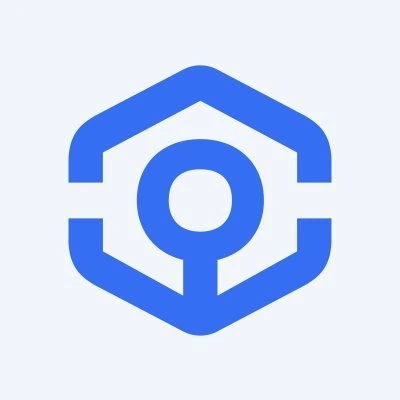Top 10 Base RPC Providers
Looking to build on Coinbase’s Layer 2? Discover the best RPC providers for Base offering fast, reliable endpoints, developer tooling, and seamless integration with EVM-based dApps. These platforms help power smooth dApp performance and real-time access to Base’s scalable infrastructure.
Get a blazing-fast RPC endpoint for trading, sniping, automation, and more

QuickNode
by QuickNode

Supernode
by Alchemy

Network APIs
by Infura (Consensys)

Ankr Liquid Staking
by Ankr
Elastic Nodes
by Chainstack
Blast API
by Bware Labs

Nodes Service
by GetBlock

Blockdaemon
by Blockdaemon Inc.

Moralis
by Moralis

NodeReal
by NodeReal
Top Base RPC Providers
As adoption of the Base Layer 2 chain continues to grow, developers are increasingly seeking the best RPC providers to support their apps. In this guide, we’ll break down what makes a great RPC provider for Base, key criteria to consider, and how top infrastructure platforms help you build fast, reliable apps on one of the most active L2 ecosystems. The best RPC provider for Base will depend on your project's specific needs, such as scalability, budget, and network support.
Key Takeaways
Base is an Ethereum Layer 2 built on the OP Stack, designed for speed, low fees, and seamless onboarding.
RPC providers offer access points for interacting with Base’s blockchain data, submitting transactions, and querying onchain states.
Choosing the right provider impacts your app’s reliability, performance, and scalability.
Understanding the rate limit set by each provider is crucial, as it determines how many API requests your app can make per second or per day, directly affecting scalability and performance.
Top RPC providers offer high uptime, fast response times, integrated tooling, and developer support.
Introduction to RPC Node Providers
RPC node providers are the backbone of blockchain application development, acting as the bridge between your app and the underlying blockchain networks. By offering robust RPC services, these node providers enable developers and enterprises to interact seamlessly with blockchain data—whether it’s sending transactions, querying smart contract states, or retrieving historical records. As the demand for decentralized applications grows, so does the need for reliable and scalable RPC node providers.
Leading providers like QuickNode, Alchemy, and Pocket Network deliver a suite of solutions tailored to various use cases. They offer public RPC endpoints for easy access, dedicated nodes for projects requiring enhanced performance, and priority support for enterprise customers. These services ensure that developers can focus on building innovative apps while relying on their provider for secure, high-availability access to blockchain networks. Whether you’re a solo developer or part of a large enterprise, choosing the right RPC node provider is essential for efficient, uninterrupted interaction with blockchain nodes and data.
Why Base Is Gaining Developer Traction
Base was developed by Coinbase and launched as a low-cost, developer-friendly Ethereum Layer 2 chain. It inherits Ethereum’s security while leveraging optimistic rollups to provide faster transactions and lower fees.
Since launch, Base has become a hub for DeFi, gaming, onchain art, and consumer-focused apps. Projects looking to scale without sacrificing user experience are increasingly deploying to Base for:
Low transaction costs
Seamless integration with Coinbase’s ecosystem
OP Stack modularity
Active builder community
The rapid growth of Base's ecosystem is attracting more developers and projects looking for scalable solutions.
What to Look For in a Base RPC Provider
The RPC provider you choose plays a foundational role in your app’s performance.
When selecting a provider, consider their pricing models—many offer pay as you go options for flexibility and cost effectiveness, as well as enterprise plan tiers for large-scale needs. As your project scales, these options ensure you can manage costs while maintaining performance. Enterprise customers may benefit from custom SLAs tailored to specific requirements. Be sure to review the request limit of each plan to ensure it matches your expected usage and growth.
Here’s what to consider:
Speed & Reliability
Low-latency endpoints, reliable access, high uptime, and global infrastructure ensure your users get a fast and consistent experience.
Multi-region Load Balancing
Top providers distribute traffic across regions to minimize downtime and optimize throughput during traffic spikes.
Enhanced APIs
Look for providers that offer not just base RPC access, but enhanced APIs such as WebSockets and JSON-RPC for real-time data and robust blockchain interactions, as well as indexing, analytics, trace APIs, and more to supercharge your development.
Monitoring & Alerts
Built-in observability, request tracking, and usage dashboards help you manage and optimize your app in real time.
Advanced monitoring tools may also include debug features to help developers troubleshoot and analyze blockchain transactions.
Ecosystem Compatibility
Support for tooling like Ethers.js, web3.js, Foundry, and Hardhat ensures smooth integration with your current stack. Comprehensive documentation is essential to help developers integrate seamlessly with these tools and maximize compatibility.
Types of RPC Endpoints
When selecting an RPC provider, it’s important to understand the different types of RPC endpoints available and how they fit your project’s needs. Public RPC endpoints are open-access gateways that anyone can use to connect to a blockchain network. These are ideal for development, testing, or low-traffic applications, offering a quick and easy way for individual developers to get started without upfront costs.
For production environments or projects with higher security and performance requirements, private RPC endpoints are the preferred choice. These endpoints are restricted to authorized users or organizations, providing greater reliability, enhanced security, and dedicated resources. Providers like Blast API offer both public and private RPC endpoints, giving developers the flexibility to choose the best fit for their workflow.
Additionally, many RPC providers offer shared nodes—an economical solution for smaller projects or those just starting out. Shared nodes allow multiple users to access the same infrastructure, balancing cost and functionality. For enterprise customers or high-traffic applications, dedicated nodes are available, delivering custom configurations, higher throughput, and tailored support. By understanding the differences between public, shared, and dedicated RPC endpoints, developers and enterprises can select the optimal setup to support their specific development and scaling needs.
Why QuickNode for Base?
QuickNode is one of the leading RPC providers supporting Base, offering high-speed infrastructure and developer-friendly tooling to help you build at scale. QuickNode provides blockchain nodes and full nodes for multiple blockchains, offering public endpoints and secure HTTPS connections. Developers can create custom endpoints, discover different service plans, and manage their account through a dedicated support portal with community support. QuickNode supports various protocols, including JSON-RPC and WebSockets, and offers both limited and unlimited requests depending on the plan. As a multi chain infrastructure provider, QuickNode is a leading provider in the crypto space, providing reliable access and tools for building and scaling blockchain projects. Here’s how QuickNode supports Base development:
High-performance RPC & WebSocket endpoints to power real-time dApps.
Advanced APIs like Trace, Token, and NFT APIs for deep onchain insights.
Stream Templates to set up transaction or contract monitoring in one click.
Marketplace add-ons to extend your dev stack with analytics, notifications, and indexing.
Developer dashboards for observability, usage monitoring, and team management.
Support for major blockchains including Polygon, BNB Chain, and BNB Smart Chain, as part of its multi chain infrastructure provider capabilities.
Whether you’re building a DeFi app, an onchain game, or a social protocol on Base, QuickNode helps you ship faster with less friction.
Base vs. Other L2s for Builders
Compared to other OP Stack chains or ZK rollups, Base offers unique advantages for developers:
Native Coinbase integration for easier fiat-to-dApp user flow
Massive potential user base through Coinbase’s consumer apps
Strong liquidity and growing ecosystem support
OP Stack flexibility for scaling or launching your own rollup in the future
Combined with robust infrastructure from top RPC providers, Base is quickly becoming a go-to option for Web3 builders.
Launching on Base: Dev Considerations
When building on Base, you’ll want to:
Choose a reliable RPC provider with good performance benchmarks.
Set up your dev environment using Ethers.js, Foundry, or Hardhat.
Deploy and test using testnet access and faucet funding.
Integrate monitoring tools to track activity and manage production workloads.
Optimize performance using event streaming or contract-based triggers.
Summary
Base is becoming one of the most active Ethereum L2s, offering a powerful platform for scalable apps. Choosing the right RPC provider is critical to making the most of Base’s speed, low fees, and developer-first ecosystem.
With providers like QuickNode offering fast access, deep APIs, and powerful dev tooling, you’re set up for success whether you're launching your MVP or scaling to millions of users.
